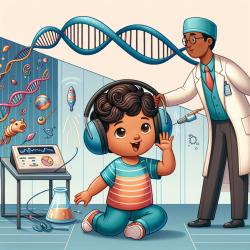As educators and practitioners working with children, understanding the broader socio-economic context in which our students grow is crucial. Recent research has highlighted how state-level macro-economic factors can significantly influence brain development and mental health in children, particularly those from low-income families.
The Study: Key Findings
The research titled "State-level macro-economic factors moderate the association of low income with brain structure and mental health in U.S. children" provides valuable insights into how economic disparities affect children's development. Conducted using data from the Adolescent Brain and Cognitive Development (ABCD) study, it involved 10,633 children aged 9-11 across 17 states.
The study found that lower family income is associated with smaller hippocampal volume and higher internalizing psychopathology. These associations were notably stronger in states with a higher cost of living. However, states offering generous cash benefits to low-income families saw a reduction in these disparities by approximately 34%.
Implications for Practitioners
Understanding these findings can empower practitioners to advocate for policies that support children's development. Here are some practical steps you can take:
- Advocate for Policy Changes: Engage with local policymakers to promote the implementation of generous anti-poverty programs that have been shown to reduce disparities in child development.
- Collaborate with Community Organizations: Partner with organizations that provide resources to low-income families, ensuring they have access to necessary support services.
- Enhance School Programs: Develop school-based programs that address the specific needs of students from low-income backgrounds, focusing on reducing stressors and providing a supportive learning environment.
- Conduct Further Research: Encourage further research within your community to understand local socio-economic impacts on child development better.
The Role of Anti-Poverty Programs
The study highlights the importance of state-level anti-poverty programs such as the Earned Income Tax Credit (EITC), Temporary Assistance for Needy Families (TANF), and Medicaid expansion. These programs not only provide financial relief but also contribute to better family functioning and reduced psychological distress among children.
Moving Forward: A Call to Action
This research underscores the need for structural policy interventions to address socio-economic disparities. By investing in social safety nets, we can create environments where all children have the opportunity to thrive regardless of their economic background.
As practitioners, we have a unique role in advocating for these changes and implementing strategies that support our students' well-being. By staying informed and proactive, we can contribute to meaningful change in our communities.
To read the original research paper, please follow this link: State-level macro-economic factors moderate the association of low income with brain structure and mental health in U.S. children.










